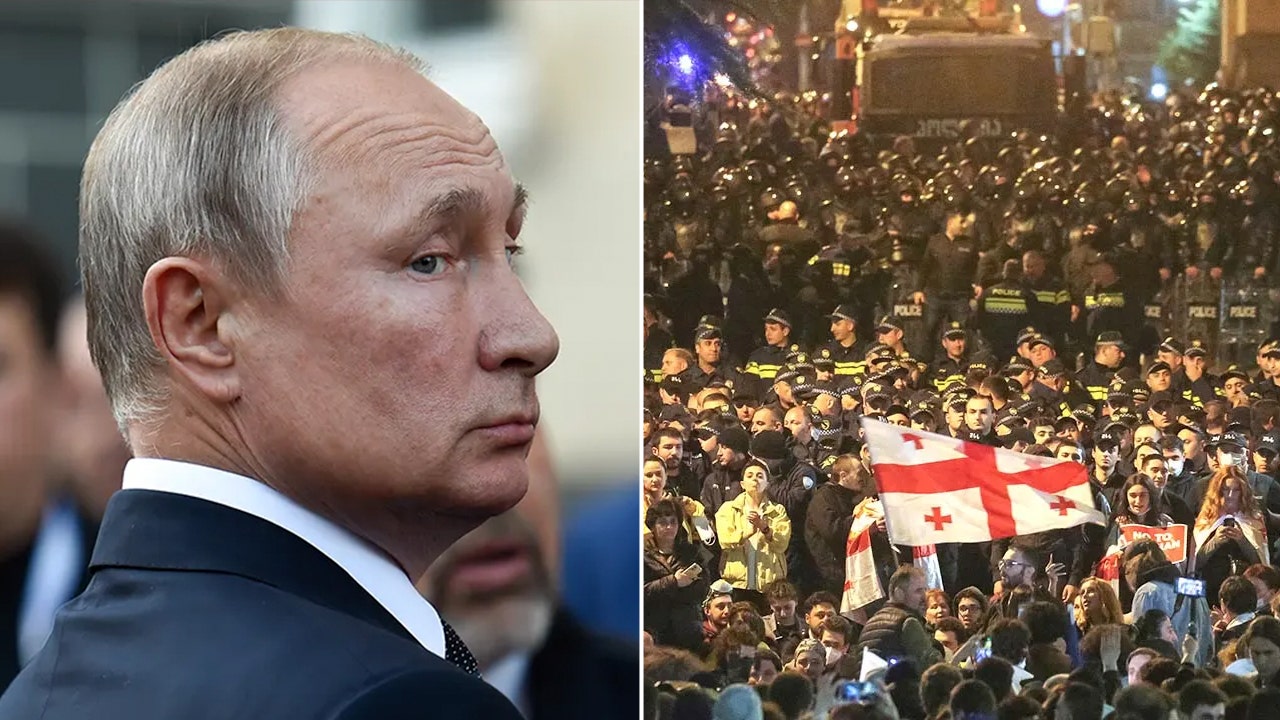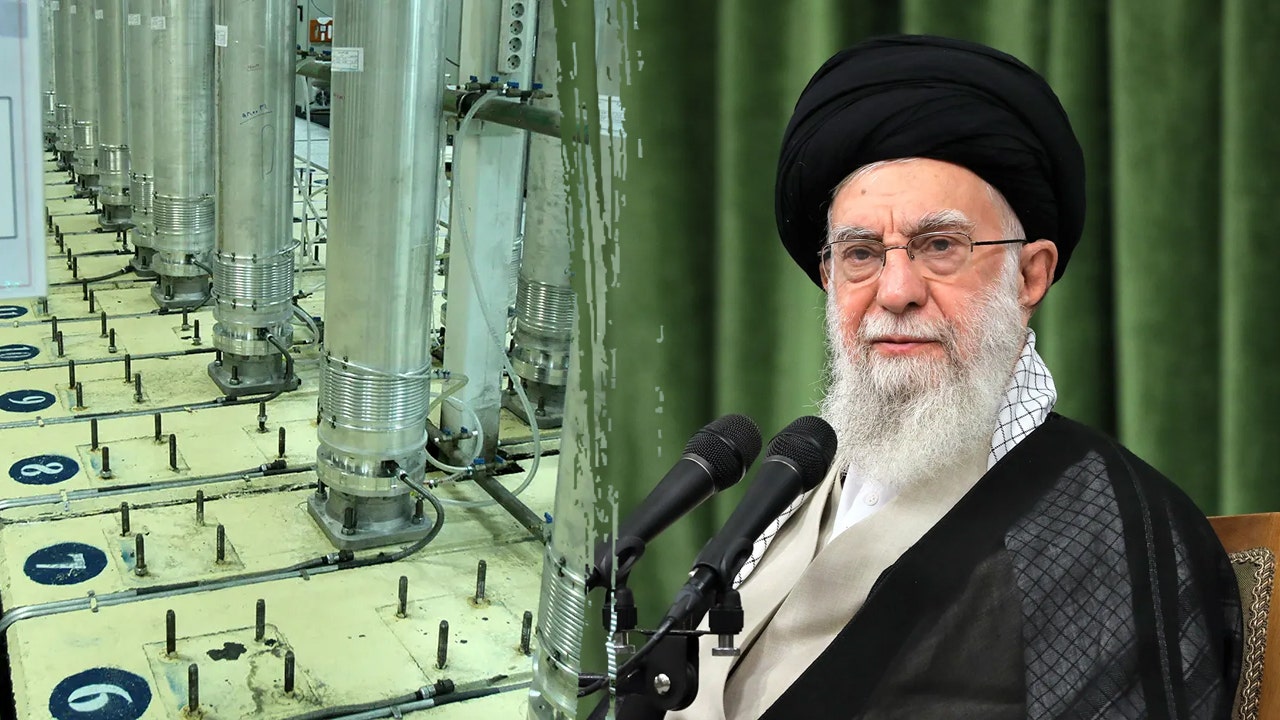As the new prime minister of Haiti, a country with no president or Parliament, where gangs have destroyed dozens of police stations and killed thousands of people, Garry Conille has arguably one of the toughest jobs of any leader in the Western Hemisphere.
He has attended funerals for slain police officers and met with their widows. He fired the police chief — blaming him for failing to fight the gangs — and named a new one, and he ushered in a contingent of police officers from Kenya tasked with helping alleviate the violence. He spent last week knocking on doors in Washington with an urgent message:
“This is no time for Haiti fatigue.”
Mr. Conille, 58, a former longtime U.N. official who had lived outside Haiti for more than a decade, took over the helms of Haiti’s government five weeks ago amid one of the country’s worst crises in decades.
The position had become vacant after armed groups joined forces to attack prisons, hospitals and entire neighborhoods in an uprising so severe that the former prime minister, who was on an overseas trip, could not return to his own country.
Mr. Conille was chosen by a presidential transitional council that is helping to oversee the country.
A gynecologist by training, Mr. Conille now must restore order to Haiti in the hopes of organizing orderly and fair elections for president and Parliament. He is viewed as something of an outsider unstained by Haiti’s notoriously dirty politics and chronic corruption who was appointed with the blessing of the Biden administration and the international community.
Haitians are left wondering: After years of political turmoil, graft and a murder plot that left the last president dead at the hands of Colombian mercenaries, can this mild-mannered technocrat turn things around for a nation with millions of people living in abject poverty and where more than 500,000 people were forced to flee their homes?
It has already been rough going: Within days of taking office, he briefly wound up in the hospital for an unknown condition.
“First, what I need is a functioning justice system, and to be honest, that I don’t quite have right now,” Mr. Conille said in an interview with The New York Times. “I have 40 police stations that have been destroyed. We need to get ready to fix them.”
His list of priorities is long: regaining territory from gang leaders’ grips, reopening schools and hospitals, rebuilding roads. He envisions a Haitian government that can provide basic services, like education and medical care, to its 11 million people, particularly the millions who are experiencing hunger.
For that to happen, Mr. Conille said the international community needed to provide more money, noting that Haiti received far more international aid in prior years, when the situation was not as dire.
“I think the crisis that we’re facing now is certainly more complex than what we faced after the earthquake,” he said. “And after the earthquake, we had certainly a much larger pool of partners engaged and engaging in a more significant way.”
A magnitude-7.0 earthquake struck Haiti in 2010, leaving a death toll that its government estimated to be as high as 316,000. Billions of dollars in aid poured in from around the world, but the nation struggled to recover.
After the tremor, Mr. Conille worked for former President Bill Clinton, who was the U.N.’s special envoy to Haiti. He had previously served as prime minister under President Michel Martelly, but lasted just four months when the two clashed over claims of corruption in post-quake contracts.
Mr. Conille met last week with Secretary of State Antony J. Blinken, members of Congress, international lenders and members of the Haitian diaspora to make the case that aid is needed more than ever.
Wolf Pamphile, the founder of the Haiti Policy House, a Washington research institute, said he was struck by the prime minister’s inviting and “calming vibe.” At a cocktail hour meeting in Washington, Mr. Conille wore a guayabera and spoke Creole and English — but not the French usually favored by the Haitian educated elites, Mr. Pamphile said.
He said Mr. Conille was enjoying a honeymoon period, but it’s unclear how long it will last.
“You know when you first start a job and everyone likes you?” Mr. Pamphile said. “He’s off to a good start. He’s delivering something people have been asking for, which is communication.”
Experts debate when exactly things got so bad in Haiti. The billions in earthquake aid never accomplished the enormous redevelopment needed. No elections have been held in eight years, which has left Parliament and most other elected positions empty.
President Jovenel Moïse was assassinated in his home three years ago this week, and the next three years were marked by a wave of gang violence that saw huge increases in kidnappings, killings and the takeover of much of Port-au-Prince, the capital.
In late February, several gangs joined forces in a quest to overthrow the government. They succeeded in forcing the resignation of the prime minister at the time, Ariel Henry. Mr. Henry had flown to Kenya to formalize an agreement for the East African nation to deploy police officers to curb gang violence. Gang leaders took advantage of his absence to attack police stations, prisons and medical facilities.
Nearly 600,000 were forced to flee their homes in recent years. The United Nations recorded 3,252 homicides between January and May, up from 2,453 during the previous five-month reporting period.
Asked why he would leave his previous job, as a regional director for UNICEF, to take on such a challenging endeavor, Mr. Conille borrowed from an expression he said he picked up in Africa: “If not me, then who? And if not now, then when?”
Mr. Conille scored points shortly after he took office by showing empathy by publicly meeting with widows of slain police officers, said Garry Pierre-Pierre, founder of The Haitian Times, an online newspaper based in New York that covers Haiti and the diaspora.
“Haitian leaders never do that,” he said.
He called Mr. Conille’s prior term as prime minister a decade ago under Mr. Martelly a “debacle,” precisely because he was not one to play politics.
“He was politically naïve,” Mr. Pierre-Pierre said. “He didn’t play the petty games that politicians writ large and especially those in Haiti play, and he was not ready for that.”
In fact, several news outlets reported last week that Mr. Conille angered members of the transitional presidential council now running Haiti because he left for Washington and notified them with a text message sent in the middle of the night, hours before his departure. Edgard Leblanc Fils, the head of the council, did not respond to a request for comment.
But Mr. Conille’s profile as a policy nerd, one detached from Haitian politics, was exactly what people were hoping for, experts said. Haitians have grown weary of the country’s political class, who have often been mired in accusations of misconduct and ties to the very gangs now wreaking havoc.
The United Nations accused Mr. Martelly of financing and arming gangs. The United States sanctioned former Prime Minister Laurent Lamothe, accusing him of misappropriating $60 million in Venezuelan government aid for private gain. Mr. Henry, who served after the president’s killing, was dogged by accusations that he had ties to a prime suspect in the case.
All three politicians denied the accusations.
“The political class has not left a good taste in the people’s mouth, and I think we were looking for people who were competent, who have track records of being able to manage things and to produce results,” said Ariel Dominique, the executive director of the Haitian American Foundation for Democracy, an advocacy group. “We are yearning for results. Whether he is the person remains to be seen.”





